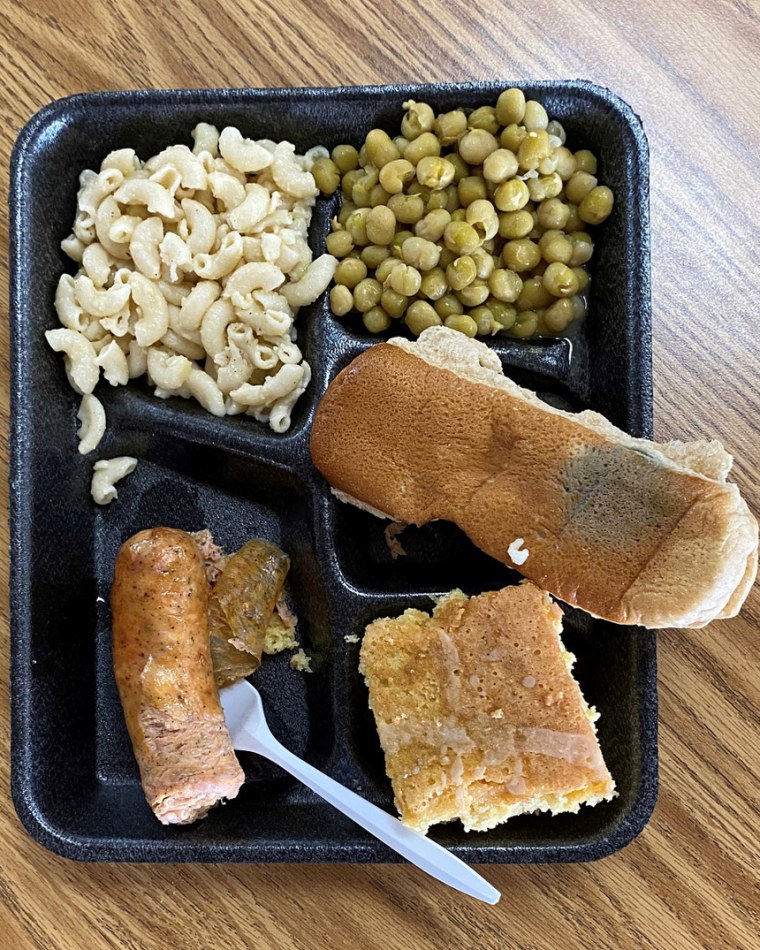A surprise inspection at a federal women’s prison in Florida found a rat infestation, leaking roofs and inmates being served moldy bread, according to a report issued Wednesday by the Justice Department’s internal watchdog that investigators say speaks to long-standing and persistent management challenges at the agency that houses federal inmates.

In an exclusive interview with NBC News, Justice Department Inspector General Michael Horowitz said his investigators were shocked at what they discovered during the inspection in May at the Federal Correctional Institution in Tallahassee, which houses 746 women and 115 men.
Horowitz said a surprise inspection in January at a Minnesota prison also found substandard conditions, and he said both findings are symptomatic of a federal prison system beset by underfunding, staff shortages and mismanagement. The federal Bureau of Prisons, which is part of the Justice Department, spends about $8.4 billion a year to house around 158,000 inmates.
“This isn’t a new problem,” he said. “I’ve been here 11 years as IG. The current BoP director is my eighth director that I’ve dealt with during that time.”
Horowitz credited the Justice Department leadership with trying to fix some of the long-standing problems. But, he said, the conditions his investigators discovered in Tallahassee show how much work still needs to be done.
“What we found was stunning,” he said. “What we saw in the facility was not in any way conditions that anybody should live in. We saw a shower with pooled water that was black. We saw black spots on walls, which looked to be consistent with mold.”



Horowitz added, “We saw inmates being served, in their regular meal, bread that had mold on it. We saw evidence of rodent droppings. We saw bugs crawling on cereal boxes. We saw warped food containers, food in there that should never be served to anybody.”
He said that he’s been documenting bad management and awful conditions at federal prisons for more than a decade, and not much has changed.
High-profile inmates have died on the Bureau of Prisons’ watch, including sex offender and accused trafficker Jeffrey Epstein, who died by suicide, and mob boss Whitey Bulger, who was murdered. Horowitz investigated both cases and found that both were linked to massive failures by the federal agency.
“When this happens, there are huge repercussions,” he said. “In Epstein’s case, it resulted in victims not having the chance to testify at trial, and to see him have to stand trial on those charges.”
Last year, a Senate investigation found rampant sexual abuse of female prisoners by male prison guards.
“It’s been very concerning and frustrating to my staff,” Horowitz said. “We do investigations over and over again, of misconduct, criminal actions, by staff on inmates … Our reviews keep finding the same problems over and over again.”
The Bureau of Prisons said in a statement, “The Federal Bureau of Prisons expresses its sincere appreciation for the valuable work accomplished by the Office of Inspector General in all the essential areas highlighted in this report. While no specific recommendations were made, the FBOP will carefully evaluate and implement any necessary corrective actions to ensure that our mission of operating safe, secure, and humane facilities continues to be fulfilled.”
Collette Peters, appointed earlier this year as the new bureau chief, told Congress recently that she is setting a new tone.
“We are now guided by the principles of normalcy and humanity and core values that emphasize accountability, integrity, respect, compassion and correctional excellence,” she said.
Americans should care about how federal prisons treat inmates, Horowitz said.
“It’s been said by many people — including by Nelson Mandela, famously — that you can judge a society by how you treat your inmates,” he said. “And looking at this, this is no way to treat inmates … It’s a basic human rights issue. We shouldn’t have to go into a prison and see food being served like this. We shouldn’t go and walk into the housing facilities and see a shower with water pool that’s black in it. We shouldn’t want to see prisons that are leaking and that the female inmates have to use feminine hygiene products to try and keep the water off their beds and off their facilities.”
